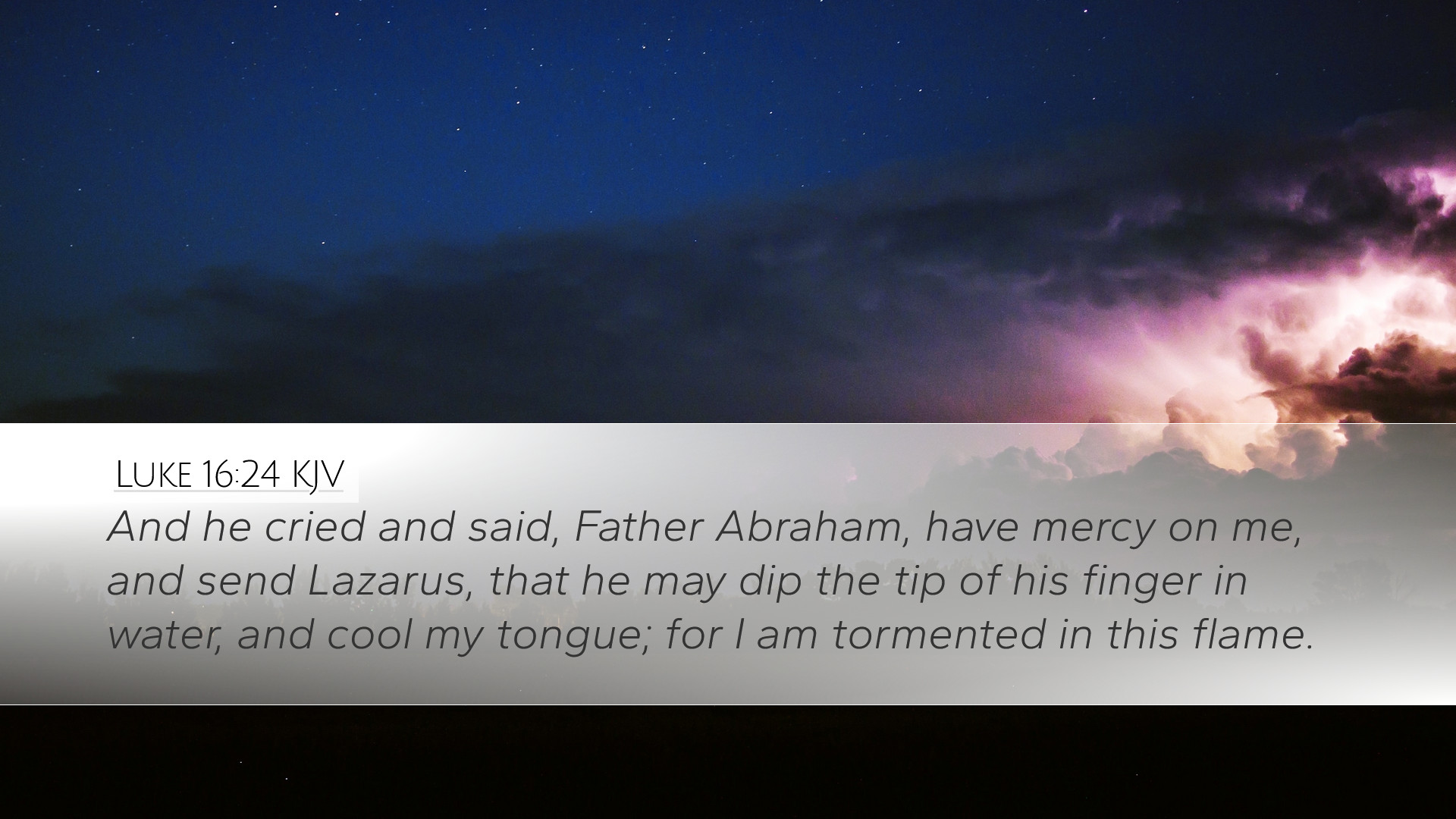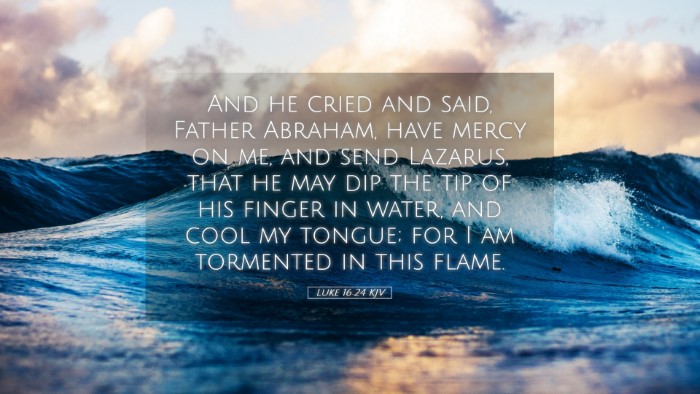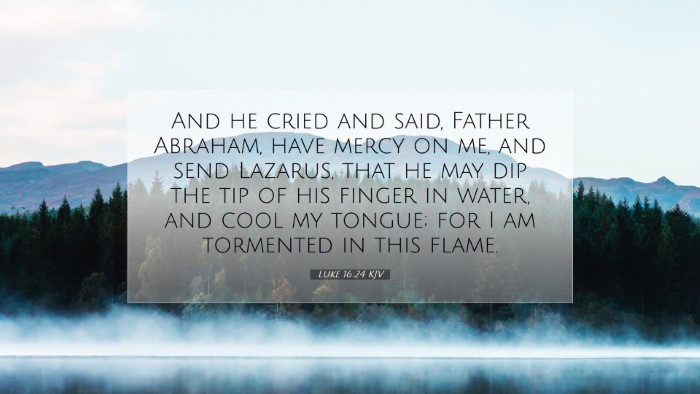Commentary on Luke 16:24
Verse: Luke 16:24 - "And he cried and said, Father Abraham, have mercy on me, and send Lazarus, that he may dip the tip of his finger in water, and cool my tongue; for I am tormented in this flame."
Introduction
This verse forms part of the Parable of the Rich Man and Lazarus, a narrative that highlights significant theological themes including the concepts of mercy, judgment, and the afterlife. In this exploration, we synthesize the insights from notable public domain commentaries, including Matthew Henry, Albert Barnes, and Adam Clarke, to provide a profound understanding of this scripture for pastors, students, theologians, and scholars.
Contextual Background
The parable presented by Jesus in Luke 16 contrasts the lives of a rich man and a poor beggar named Lazarus. The rich man indulged in luxury while Lazarus suffered at his gate. Upon death, their destinies reversed. Lazarus is comforted in the bosom of Abraham, while the rich man finds himself in torment. This context sets the stage for understanding the urgency and desperation expressed in the rich man’s plea in verse 24.
Commentary Highlights
- Desperation and Crying Out: The term "cried" signifies the rich man's intense anguish. According to Matthew Henry, it illustrates the depths of his suffering, emphasizing that in the afterlife, many who felt secure in their lives on Earth may find themselves in a state of despair.
- Appeal to Abraham: The rich man's call to "Father Abraham" reveals a misunderstanding of his own spiritual state. Albert Barnes notes that this plea reflects a Jewish expectation of favor based on ancestry, suggesting a false sense of entitlement.
- Request for Mercy: The request for mercy indicates that the rich man finally realizes his need for compassion, which he denied to Lazarus during his life. Adam Clarke remarks on the irony—this rich man, who had every opportunity to show kindness, now seeks it in his time of need.
- Significance of Lazarus: The rich man's demand that Lazarus should come to him even in the afterlife speaks volumes about his continued disregard for Lazarus as a person. Henry points out that in hell, the rich man still sees Lazarus merely as a servant who should cater to him.
- Symbolism of Water: The plea to "dip the tip of his finger in water" signifies the intense thirst and unquenchable desire for comfort that characterizes hell. Barnes explains that water symbolizes relief, and the rich man’s urgency reflects his overwhelming torment.
- Understanding Torment: The phrase "tormented in this flame" portrays hell as a place of active suffering. According to Clarke, the flames are not necessarily literal; they represent the anguish that sinners experience when separated from God's grace.
Theological Reflections
This verse raises important theological questions regarding justice, mercy, and the human condition. It serves a dual purpose in its warning and instruction:
- Justice of God: This passage illustrates the consequences of earthly choices and God's justice, highlighting that neglecting the poor and vulnerable has eternal repercussions.
- Nature of Mercy: The rich man's late plea for mercy challenges readers to consider who we ignore in our lives today. It reminds us of our moral responsibility towards those in need.
- Understanding the Afterlife: Through this story, Jesus sheds light on the realities of heaven and hell, emphasizing the finality of judgment and the stark contrast between the two destinies.
Application for Life and Ministry
This scripture calls on present-day believers to reflect deeply on their actions and attitudes towards others, especially the marginalized. It provides several applications for life and ministry:
- Generate Compassion: Pastors and leaders should encourage congregants to foster a spirit of compassion, ensuring that the needs of the poorer and suffering members of society are met.
- Teach on Justice: It is imperative to preach about the responsibility of believers to advocate for justice and mercy in their communities, reflecting Christ's love through actions.
- Prepare for Eternity: This parable serves as a reminder to focus not only on present comforts but also on the eternal implications of our choices and how we engage with others.
Conclusion
Luke 16:24 provides a powerful, piercing glimpse into the consequences of life choices concerning compassion and mercy. The combined insights from public domain commentaries enhance our understanding of this poignant narrative, urging us to live with eternal perspectives in mind. As we meditate on this verse, let us strive not only for personal piety but for a genuine expression of love and mercy that reflects the heart of Christ.


